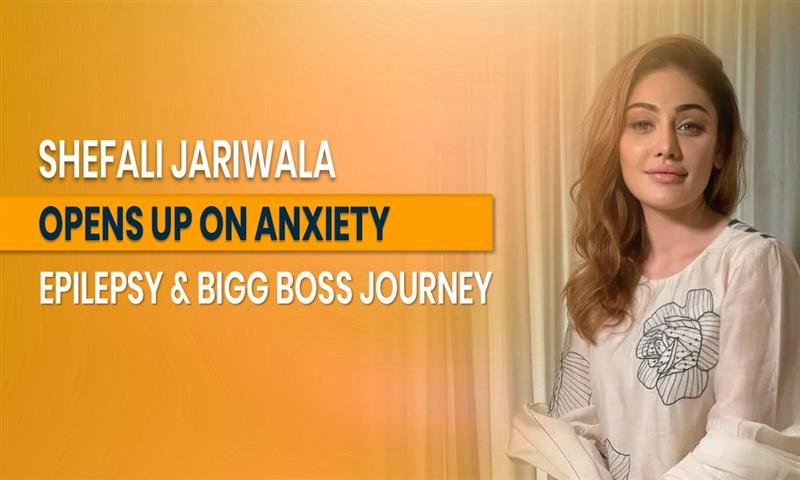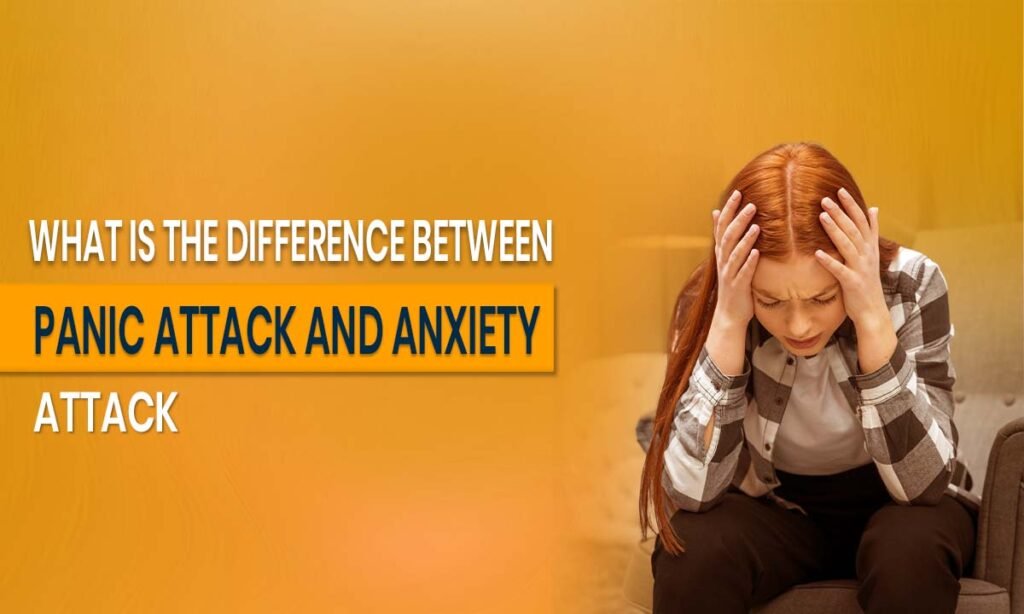
If you were a part of the early 2000s, you’ll likely remember the catchy beats of “Kaanta Laga” and the vibrant presence of Shefali Jariwala. With her infectious energy and bright smile, she quickly became a household name. But while Shefali’s career in music videos and reality television made her famous, there was another, less visible side to her life—a story filled with personal battles, resilience, and a courageous journey through mental health struggles. Today, we’ll explore Shefali’s journey of anxiety and epilepsy and how she used her platform to speak openly about these issues, inspiring many along the way.
The Shefali We Knew vs. The One We Didn’t
Shefali Jariwala was not just a reality TV star; she was a woman who lived through both the bright lights of fame and the shadows of personal challenges. Her unexpected passing at the age of 42 was a shock to fans and the entertainment industry. Yet, Shefali’s true legacy is not just about her public fame—it’s about her bravery in openly confronting mental health issues, including anxiety and epilepsy, which inspired many people facing similar struggles.
Why Her Story Matters
In an era where celebrities are often seen as living flawless lives, Shefali broke the mold by sharing the raw truth of her emotional and mental battles.
Her candid conversations about anxiety and depression made her more relatable to millions of fans who were facing their own mental health challenges. Shefali showed that even those in the limelight are not immune to struggles and that mental health issues can affect anyone, regardless of fame or success.
Bigg Boss: More Than Just a Show
Bigg Boss is not your typical reality show. It’s an emotional and psychological challenge. Contestants are locked inside a house, watched by cameras 24/7, and forced to navigate constant drama and conflict. For Shefali, the experience was transformative—emotionally exhausting and life-altering.
The Loudest Voice in the Room
Shefali revealed that after her time in Bigg Boss, she found herself speaking more loudly, even at home. “I don’t know how I started speaking so loudly in the house after Bigg Boss, I started talking louder even at home,” she admitted. The intense environment of the show left an imprint on her behavior, making it difficult for her to adjust back to her quiet, everyday life. Her husband, Parag Tyagi, often had to remind her to relax, saying, “You are not in the Bigg Boss house anymore; relax.”
The Pandemic’s Emotional Toll
As if the emotional strain of Bigg Boss wasn’t enough, Shefali found herself facing yet another challenge during the COVID-19 lockdown. The world came to a standstill, and Shefali, too, faced an “extended lockdown” of her own. She shared how the lack of external distractions, combined with her own mental health struggles, made that year incredibly tough for her. “That one year was very difficult for me. I had anxiety issues,” she openly shared.
Anxiety and Depression: The Hidden Struggles
One of Shefali’s greatest strengths was her openness about battling anxiety and depression. In an industry where mental health is often swept under the rug, Shefali’s transparency stood out. Her time on Bigg Boss made her emotions feel heightened—everything from love to frustration seemed amplified. “The more sensitive, intuitive, and giving a person is, the more vulnerable they become to emotional burnout,” explained psychotherapist Delnna Rrajesh.
Her emotional sensitivity, coupled with the pressure of fame and her ongoing battle with epilepsy, created a perfect storm of stress. She lost friends, faced medical difficulties, and sought professional help to deal with her mental health issues. “Anxiety is not a good thing,” she said, showing that mental health doesn’t care about how famous you are.
Epilepsy: The Silent Battle
Though Shefali was seen as confident and powerful, she was also battling epilepsy—a neurological condition that can cause seizures. This condition added another layer of complexity to her life, especially with the stress and emotional upheaval from her career. However, Shefali didn’t shy away from talking about it, using her platform to break the stigma around neurological conditions.
Yoga: A Tool for Emotional Healing
Through her struggles with epilepsy and mental health, Shefali turned to yoga for relief. She discovered that yoga wasn’t just a way to stay fit, but a path to emotional balance and calm. After her diagnosis, Shefali found yoga helped her manage stress and anxiety.
“Yoga isn’t just about stretching; it’s about softening the nervous system and finding stillness,” said Delnna Rrajesh.
For Shefali, yoga became a sanctuary—a way to find peace and calm in a chaotic world. It wasn’t just about physical poses but about mental clarity and emotional healing, something that everyone, regardless of their fame, can benefit from.
The Real Cost of Reality TV
It’s easy to think of reality TV stars as living the dream—fame, attention, and drama. But the emotional cost is often hidden. The pressure of being constantly watched, cut off from the outside world, and living in a highly controlled environment can wear anyone down. Shefali’s story highlights the emotional toll that reality TV can take. It’s not just about entertainment—it’s about real mental health challenges.
Coping with Mental Health: It’s Okay to Ask for Help
One of Shefali’s most valuable lessons to her fans was that it’s okay to ask for help. She was open about attending therapy, seeking medical treatment, and not trying to deal with everything alone. She said, “You can’t just snap out of it by yourself.” Shefali’s courage in seeking support showed that mental health recovery is a process that takes time—and there’s no shame in needing help.
If you are struggling with anxiety, depression, or any mental health issue, know that you are not alone. There is help out there, and seeking it is a sign of strength.
Lessons from Shefali: Building Emotional Resilience
Shefali Jariwala’s journey is a powerful reminder that resilience is not about avoiding struggles—it’s about facing them head-on and continuing to move forward, no matter how many times life knocks you down. By sharing her story of battling anxiety, epilepsy, and the emotional toll of reality TV, Shefali showed us the importance of mental health awareness, honesty, and seeking help when needed.
Whether you’re a fan of Bigg Boss, struggling with mental health, or simply seeking inspiration, remember Shefali’s words: talk about it, reach out, and know that healing and happiness are possible, even in the toughest times.
Alcohol Detox Treatment
Cocaine Addiction Treatment
Drug Addiction Treatment
Heroin Addiction Treatment
Key Takeaways:
- Anxiety and depression affect everyone—no one is immune.
- Asking for help is a sign of strength, not weakness.
- Yoga and mindfulness are powerful tools for managing stress.
- Talking about mental health helps others feel supported and less alone.
- Resilience is about standing up every time you fall.
Conclusion: Shefali Jariwala’s Legacy
Shefali’s life is a reminder that social media, reality TV, and celebrity culture don’t always show the whole story. Behind the smiles and the spotlight, there may be hidden struggles. Shefali’s courage in speaking about her anxiety, epilepsy, and the emotional effects of reality TV has left us with an important legacy: to be honest, to seek help, and to understand that no one is alone in their mental health journey.
Read our Blogs
ADHD in Adults: Symptoms, Challenges, and Management
Panic Attack vs Anxiety Attack: Causes and Treatments
Understanding Erectile Dysfunction: Symptoms and Causes
How Depression with Anxiety Diagnosis Impacts Your Health

